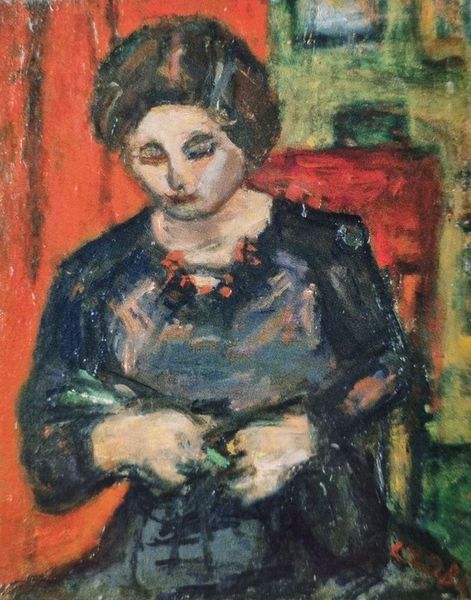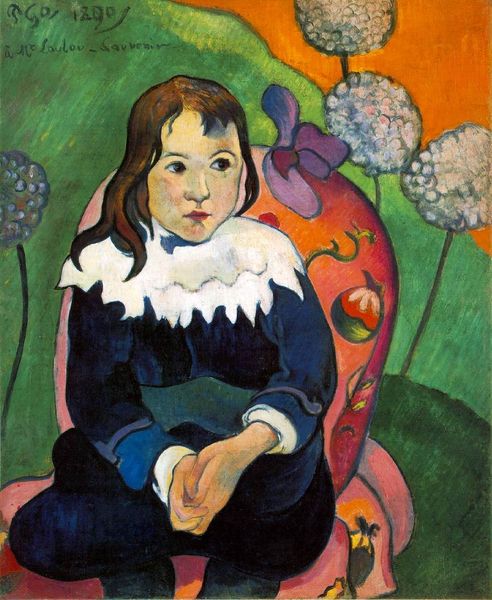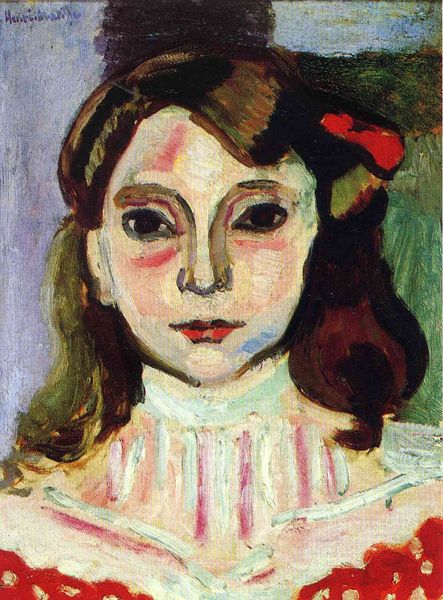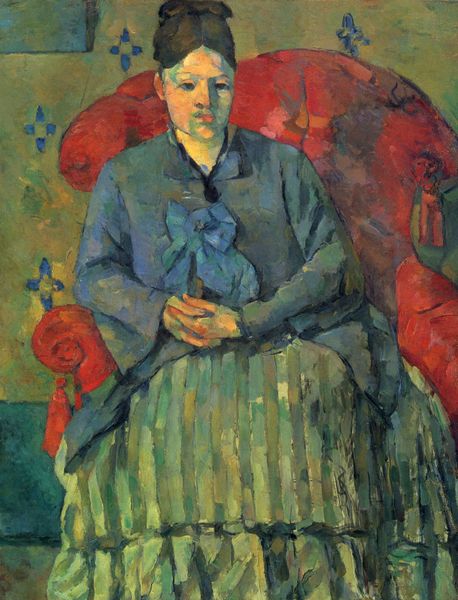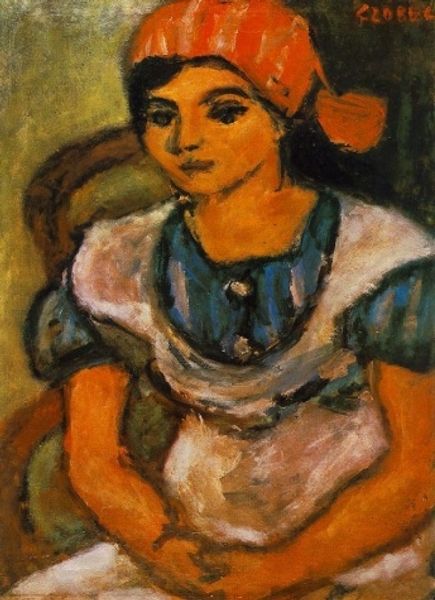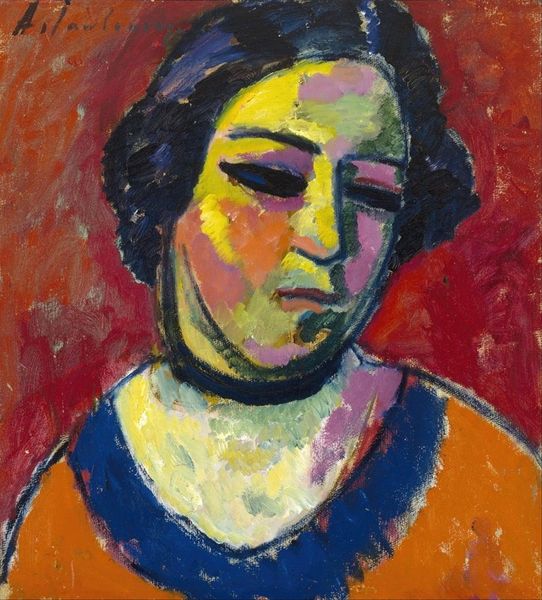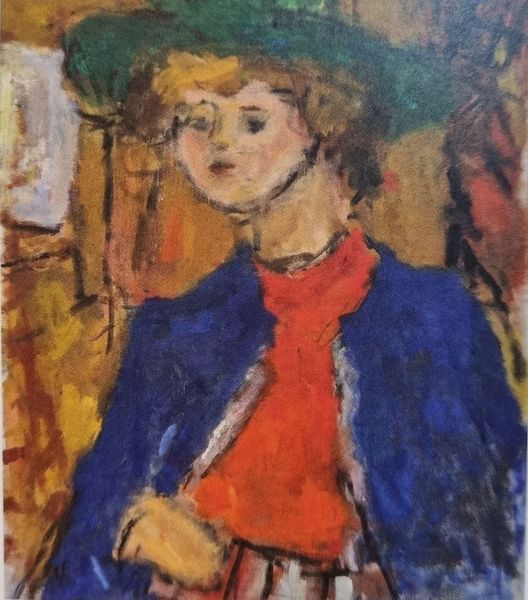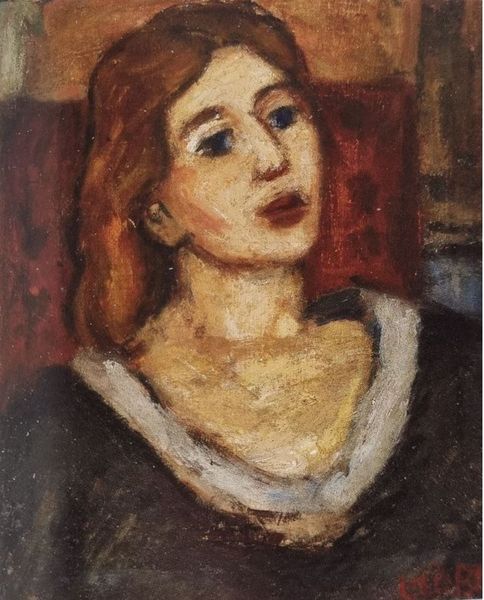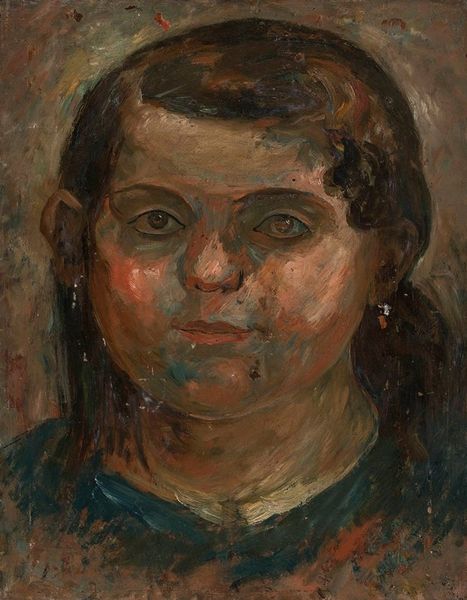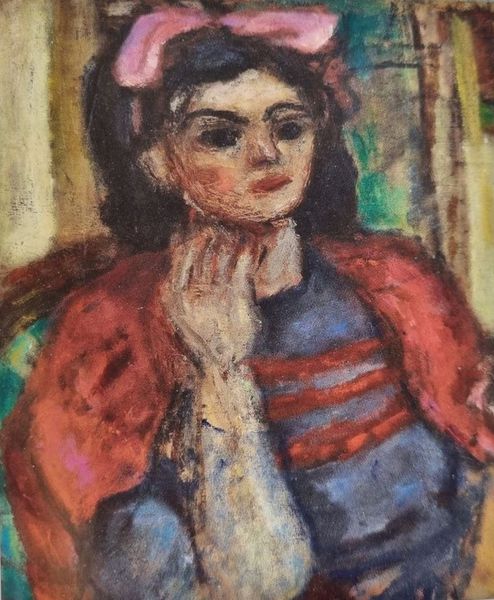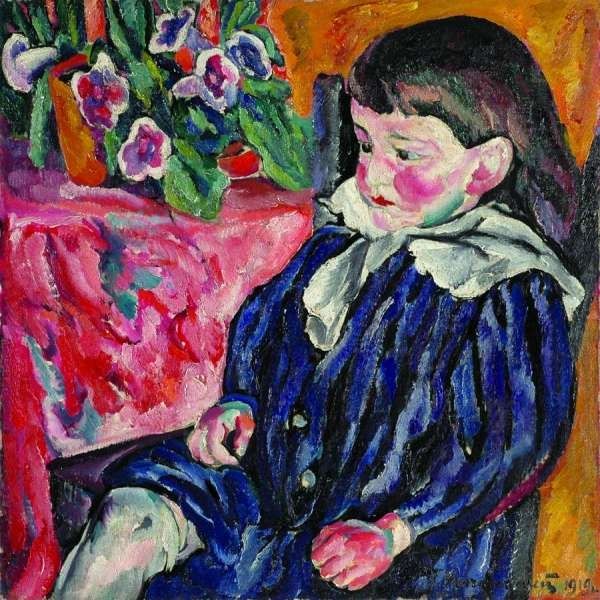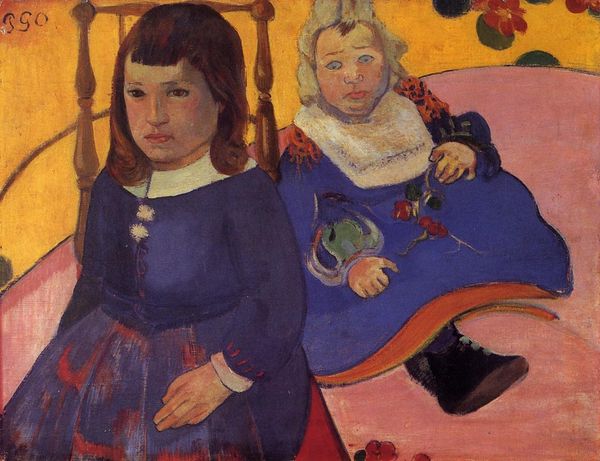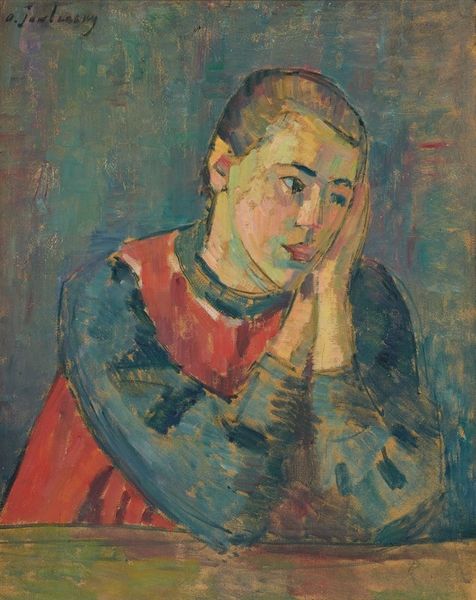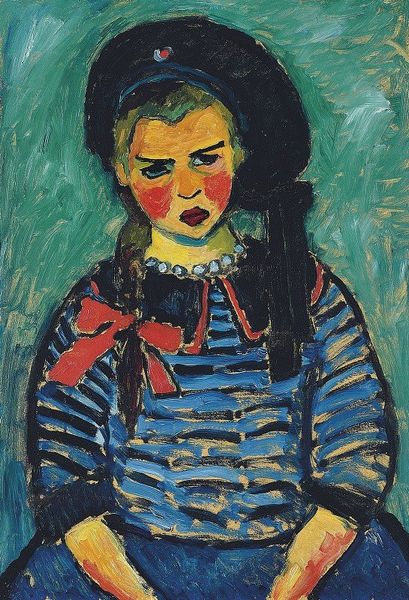
oil-paint
#
portrait
#
oil-paint
#
figuration
#
oil painting
#
symbolism
#
post-impressionism
Dimensions: 32.1 x 25.4 cm
Copyright: Public domain
Editor: This is Paul Gauguin’s "The Child," an oil painting from 1895. It's quite striking – the colours seem almost intentionally… discordant, particularly the yellow background against the blue dress. What elements stand out to you? Curator: The deliberate arrangement of colour indeed is very prominent. Observe how Gauguin utilizes juxtaposed hues: the cadmium yellow impasto ground, creating a field against which the chromatic intensity of the child’s face and garment establish dynamic relationships. What is your reading of that effect? Editor: Well, it definitely creates a sense of unease. The slightly clashing colours keep my eye moving, never quite settling. The flatness also emphasizes the artificiality of the scene. Is that intended, you think? Curator: Most likely so. Focus instead not on facile mimetic interpretation, but on the surface. Gauguin abandoned traditional modeling in favor of flat planes of color. Examine, as well, the curvilinear contours enclosing regions of pigment. This simplification advances his aesthetic. What could one interpret in the visual strategy? Editor: It flattens the figure, makes her seem less… real? Almost iconic? The lines almost delineate an emotional state more than a physical form. The tension of surface seems key here to convey not just her, but an abstract presence. Curator: Precisely. Consider how the visible brushstrokes further articulate the constructed, rather than copied, nature of reality within the image-object. Each formal component—color, line, texture—synthesizes to perform a distinct role, exceeding mere representation. Editor: This exploration makes Gauguin's piece more profound, as he actively uses colour and flattening techniques not just to portray the child, but the very concept of childhood itself, rendered strange and potent. Curator: The material and compositional strategies produce multiple registers for interpretation beyond naive viewing, shifting it towards formal concerns about seeing and knowing.
Comments
No comments
Be the first to comment and join the conversation on the ultimate creative platform.
